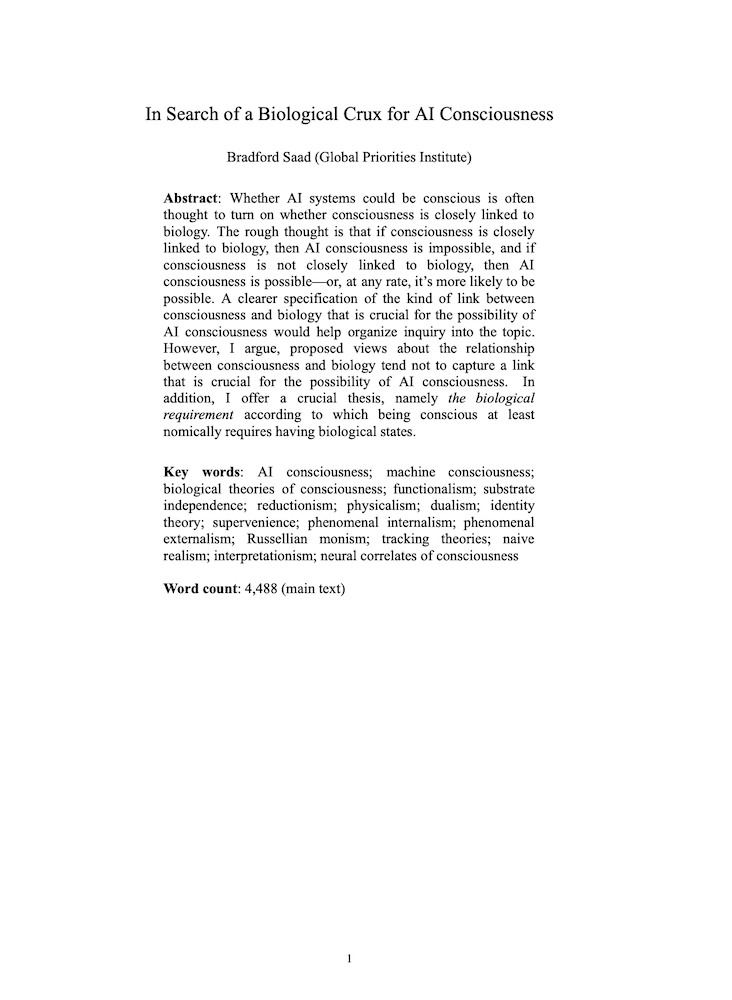In search of a biological crux for AI consciousness
Bradford Saad (Global Priorities Institute, University of Oxford)
GPI Working Paper No. 18-2024
Whether AI systems could be conscious is often thought to turn on whether consciousness is closely linked to biology. The rough thought is that if consciousness is closely linked to biology, then AI consciousness is impossible, and if consciousness is not closely linked to biology, then AI consciousness is possible—or, at any rate, it’s more likely to be possible. A clearer specification of the kind of link between consciousness and biology that is crucial for the possibility of AI consciousness would help organize inquiry into the topic. However, I argue, proposed views about the relationship between consciousness and biology tend not to capture a link that is crucial for the possibility of AI consciousness. In addition, I offer a crucial thesis, namely the biological requirement according to which being consciousness at least nomically requires having biological states.
Other working papers
Moral uncertainty and public justification – Jacob Barrett (Global Priorities Institute, University of Oxford) and Andreas T Schmidt (University of Groningen)
Moral uncertainty and disagreement pervade our lives. Yet we still need to make decisions and act, both in individual and political contexts. So, what should we do? The moral uncertainty approach provides a theory of what individuals morally ought to do when they are uncertain about morality…
AI alignment vs AI ethical treatment: Ten challenges – Adam Bradley (Lingnan University) and Bradford Saad (Global Priorities Institute, University of Oxford)
A morally acceptable course of AI development should avoid two dangers: creating unaligned AI systems that pose a threat to humanity and mistreating AI systems that merit moral consideration in their own right. This paper argues these two dangers interact and that if we create AI systems that merit moral consideration, simultaneously avoiding both of these dangers would be extremely challenging. While our argument is straightforward and supported by a wide range of pretheoretical moral judgments, it has far-reaching…
How should risk and ambiguity affect our charitable giving? – Lara Buchak (Princeton University)
Suppose we want to do the most good we can with a particular sum of money, but we cannot be certain of the consequences of different ways of making use of it. This paper explores how our attitudes towards risk and ambiguity bear on what we should do. It shows that risk-avoidance and ambiguity-aversion can each provide good reason to divide our money between various charitable organizations rather than to give it all to the most promising one…

